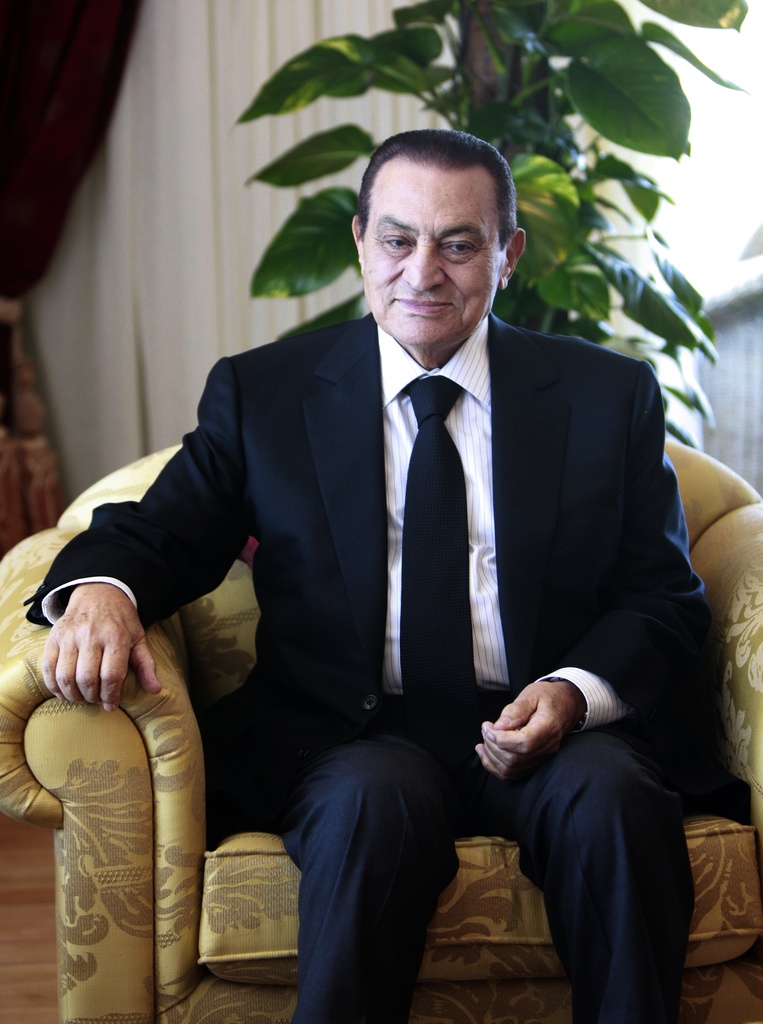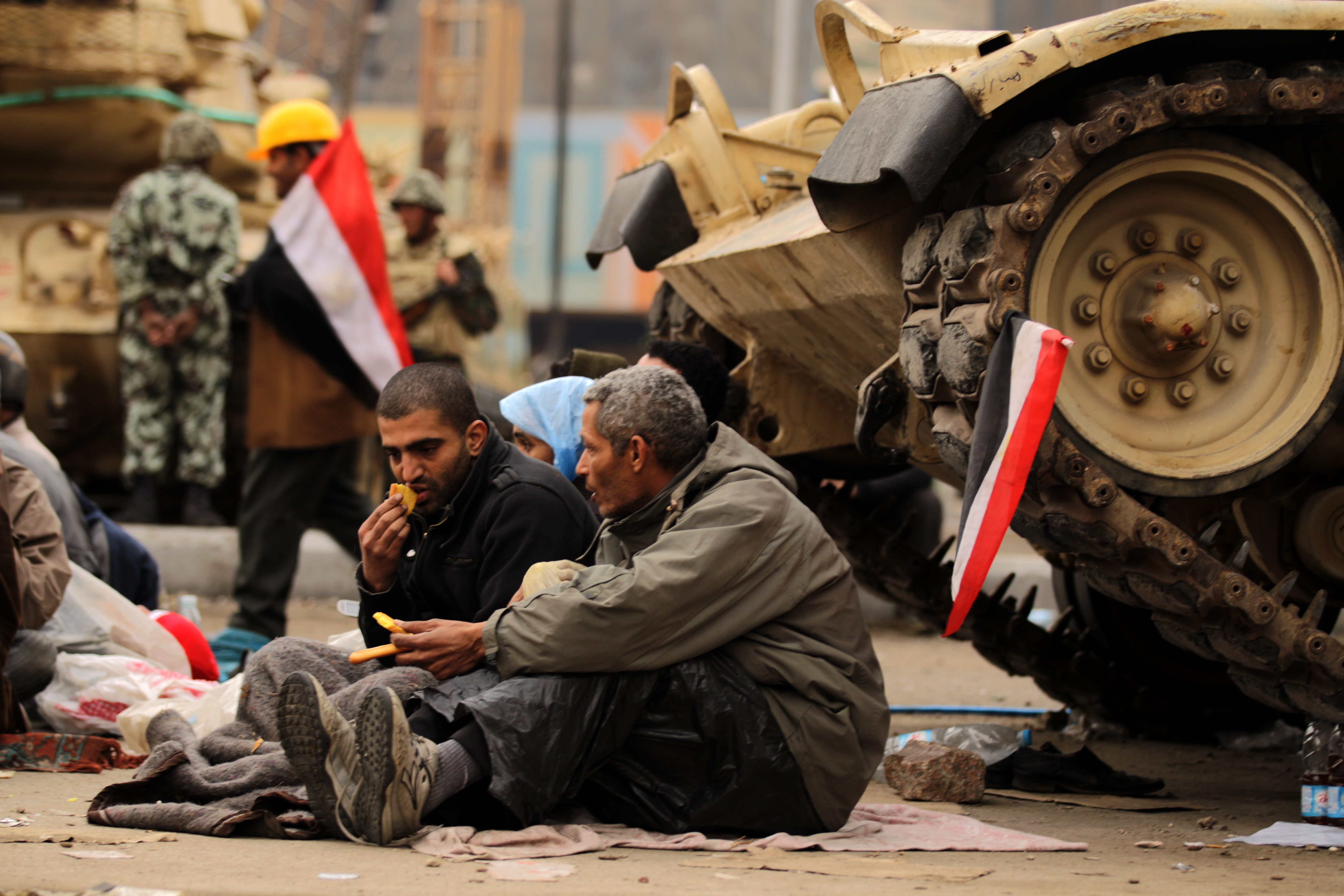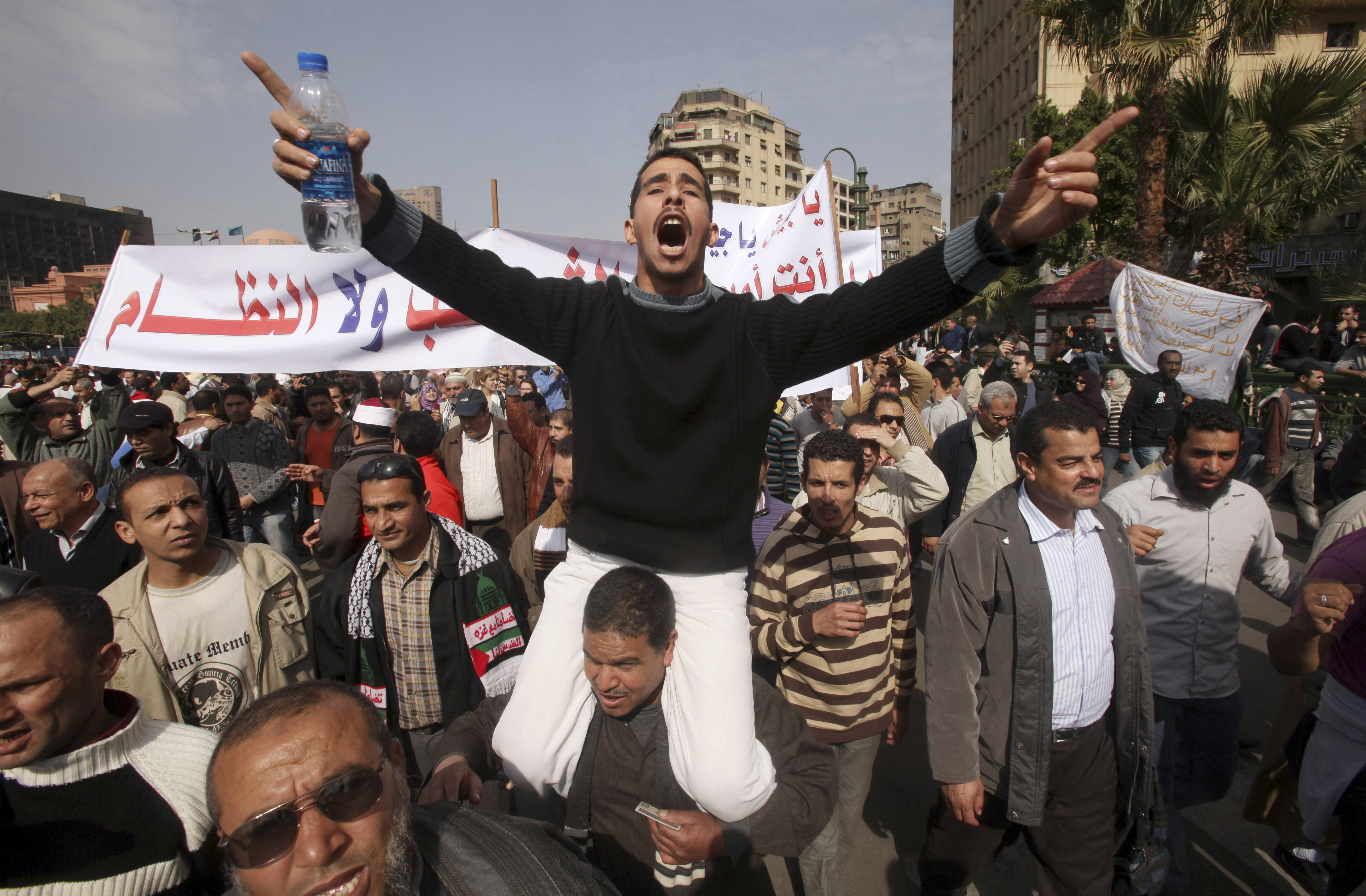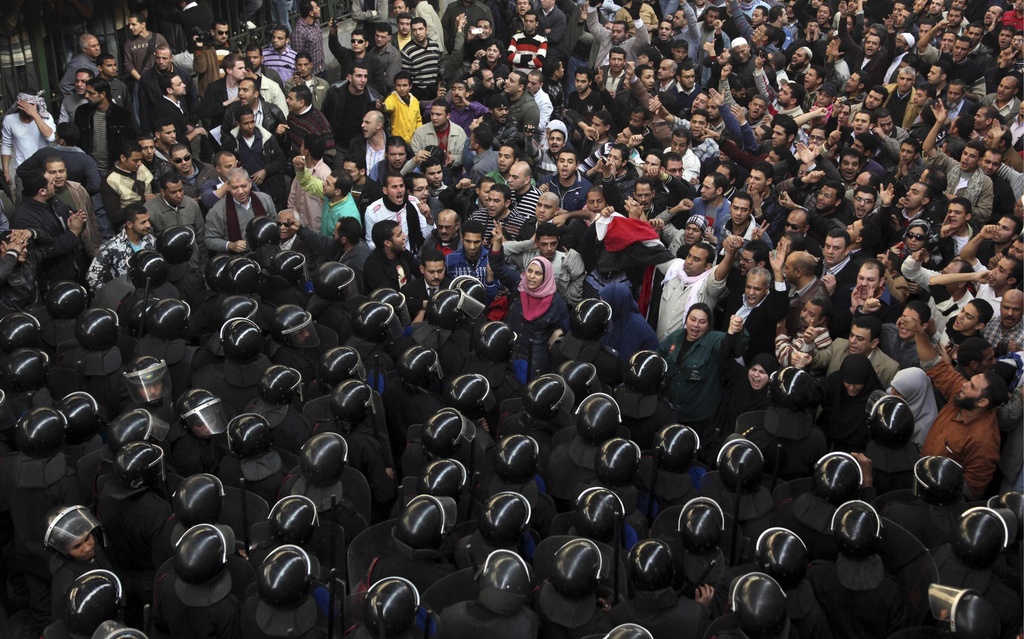Egyptian protestors furious as Mubarak stays on

Egyptian President Hosni Mubarak has dismayed regime opponents by announcing that he will stay in office, although he will transfer some power to the vice-president.
In a widely anticipated speech on Egyptian television on Thursday evening Mubarak said he would not step down until an elected government could take over after elections in September.
The hundreds of thousands of protestors who had gathered in and around Cairo’s Tahrir Square greeted his speech with dismay. They changed “Down, down with Hosni Mubarak” and “Leave, leave” and waved shoes to demonstrate their anger and contempt.
Mubarak gave most of his powers to his vice president but refused to resign or leave the country, hours after the military made moves that had all the markings of a coup.
“We are waiting for a strong reaction from the army to Mubarak’s speech,” said Mohammed Mustapha, a protest spokesman. He said “huge numbers” of protesters were expected on Friday.
Prominent reform advocate Mohamed ElBaradei, whose supporters were among the organizers of the 18-day-old wave of protests, warned in a Twitter message that “Egypt will explode”.
“The army must save the country now,” the Nobel Peace laureate said. “I call on the Egyptian army to immediately interfere to rescue Egypt. The credibility of the army is on the line.”
Another leading figure of the protest movement, Google executive Wael Ghonim, called for caution.
“The situation is complicated. I don’t want the blood of the martyrs to be wasted and at the same time I don’t want to see more bloodshed,” he said in comments posted on Facebook.
“We have really achieved significant political accomplishments in a short time but the youth’s demand of the ouster (of Mubarak) has not been accomplished.”
Dashed hopes
The hopes of the protestors in had been raised earlier on Thursday when a senior army officer, Hassan al- Roweny, told them that their demands would be realised.
The crowd responded to that announcement by shouting “The regime has fallen!”
The atmosphere in the square was said to be joyful but peaceful as they waited for Mubarak’s television appearance. The hope was that he would announce not only his own resignation but also an end to his regime.
Their hopes were dashed by Mubarak’s speech, in which he made much of his patriotic credentials and the pain he felt at the difficult times Egypt was experiencing.
In addition to the handover of some powers to the newly-appointed vice president, Omar Suleiman, he also said that he had ordered some constitutional amendments in response to demands for reform, and promised to lift the notorious emergency laws when security permitted.
Suleiman later appeared on television and pledged to do his best to “restore stability and happiness” to Egypt. He said the door of dialogue had been opened. He called on the protestors to go home and to back to work.
President Barack Obama appeared dismayed by Mubarak’s announcement. He said in a statement that it was not clear that an “immediate, meaningful” transition to democracy was taking place and warned that too many Egyptians are not convinced that the government is serious about making genuine change.
Unrest in Egypt started on January 25, following a revolt that toppled the leader of Tunisia.
Protestors massed in Cairo, where they gathered in Tahrir Square, and in a number of other towns and cities.
Some 300 people have died in the protests, and numerous state buildings have been torched.
Some workers have also embarked on strike action.
At the end of January President Hosni Mubarak dismissed some unpopular ministers and appointed his first ever vice-president, intelligence head Omar Suleiman. The minister of civil aviation Ahmed Shafiq became prime minister.
But Mubarak’s promises to address public anger at rising prices, unemployment and the huge gap between rich and poor failed to halt broader calls for an end to the Mubarak regime.
The United States and other western countries have called for an orderly transition to a more democratic system.
Mubarak came to power 30 years ago after the assassination of President Anwar Sadat.

In compliance with the JTI standards
More: SWI swissinfo.ch certified by the Journalism Trust Initiative




You can find an overview of ongoing debates with our journalists here . Please join us!
If you want to start a conversation about a topic raised in this article or want to report factual errors, email us at english@swissinfo.ch.